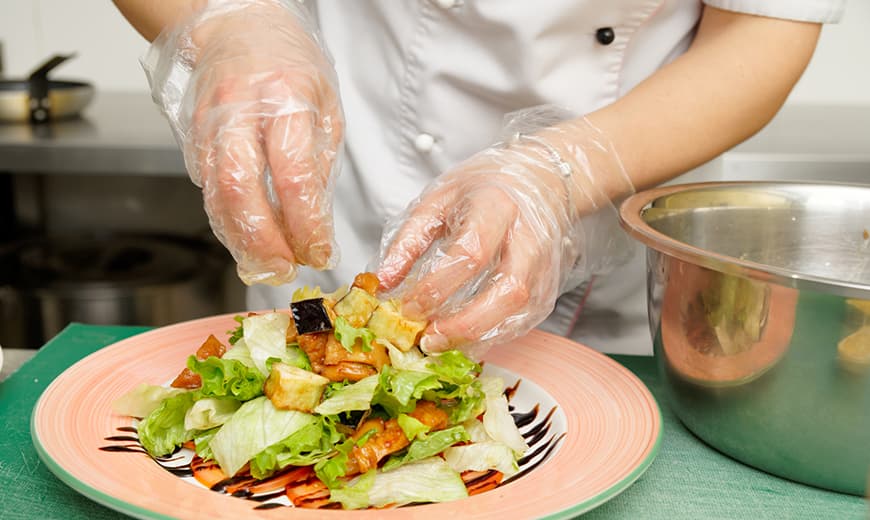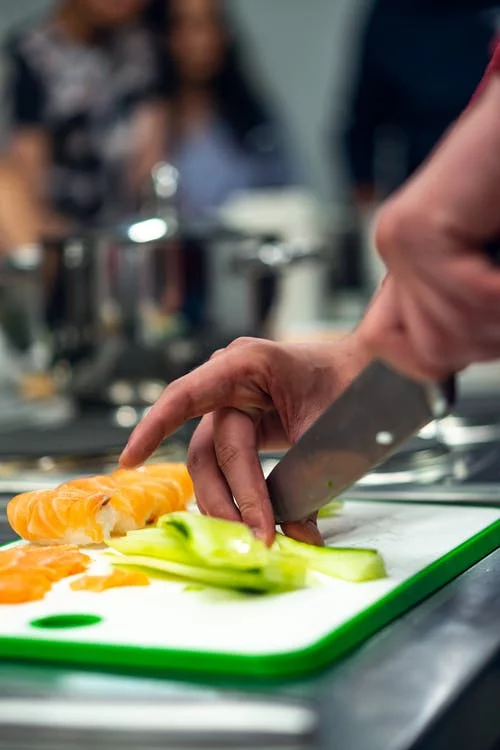what must food handlers do when handling ready to eat food
Do not eat spit smoke sneeze blow or cough over food or surfaces that touch food. While refrigeration slows the growth of most bacteria food handlers need to know that some bacteria like listeria monocytogenes thrive in cool temperatures.
Always wash your hands before putting gloves on and when changing to a new pair.
. Every 4 hours when working at same task. Proper use of gloves is essential to preparing and serving food. Restrain hair and tie back long hair.
Dirty hands will contaminate food and make the food unsafe to eat. Throw out any food that was in the line of fire try to do so into a bent elbow well away from food. Food handlers can delay the growth of microorganisms by keeping hot food hot and cold food cold.
Tie hair back remove loose jewellery cover open sores dont touch ready-to-eat food with your bare hands - use tongs or gloves. Before beginning a different task. Do not handle food with bare hands use gloves instead.
Before handling ready to eat food as well as different types of food. Secure hair clips hair pins buttons on clothes jewellery bandages. Never handle ready-to-eat foods with bare hands.
Never wash and reuse gloves. The current Model Food Code released in 2017 states that food handlers should not touch ready-to-eat foods with their bare hands and that suitable utensils such as deli tissue spatulas tongs single-use gloves or dispensing equipment should be used. Store unwashed food or raw food away from ready-to-eat food.
Use disposable single-use gloves when preparing ready-to-eat foods. We understand that sometimes you just cant control it but if you absolutely must cough or sneeze make sure that you. Wash your hands with soapy water and.
Store foods away from cleaners and poisons. Use utensils or disposable gloves when handling ready-to-eat food. A cook wore singe use gloves while forming raw ground beef into patties.
Participants were on-camera for an average of 135 hours of actual food handling pre-food safety infosheet introduction and another 135 hours post-infosheet introduction. Wash hands and surfaces often. The top 10 things you should never do as a food handler 1.
This includes washing their hands. Gloves and other barriers do not replace handwashing. Always use a clean spoon.
Do not use fingers to sample food. As soon as they become soiled or torn. Cook Cook to the right temperature.
After handling raw meat fish or poultry and before handling ready-to-eat food. Wear clean clothing and aprons. Throw it out C.
A food handler prepping a salad stops to scratch an itch on her arm and then returns to making the salad. The current Model Food Code released in 2017 states that food handlers should not touch ready-to-eat foods with their bare hands and that suitable utensils such as deli tissue spatulas tongs single-use gloves or dispensing equipment should be used. The Food Safety Standards Code also says they must not handle any food where there is a chance they might make the food unsafe or unsuitable because of their illness.
Surface such as a cutting board or a utensil was contaminated with a raw food or dirty hands and then was used with a ready-to-eat food occurred close to once per hour. You always take a chance that bacteria can grow and produce toxins when you cool food. You should change gloves at the following times.
Before they start handling food or go back to handling food after other work. Immediately before working with ready-to-eat food after handling raw food. Use of these tools provides a barrier between hands and the food thereby minimizing some.
For example people who have not washed their hands after they used the restroom spread illnesses such as Hepatitis A and Norovirus. To avoid cross-contamination wash hands properly and thoroughly before putting on gloves and when changing to a new pair See Practicing Good Hand Hygiene for Food Workers fact sheet. Do not eat or chew gum in food handling areas.
What should be done with food that has been handled by a food handler who has been restricted or excluded from the operation due to illness. What must food handlers do when handling ready to eat food. State law requires that food handlers properly wash their hands in order to prevent contamination of food.
The cook continued to wear them while slicing hamburger buns. Food handlers are expected to wash their hands whenever their hands are likely to contaminate food. This should be pretty obvious.
Take all practicable measures to prevent unnecessary contact with ready-to-eat food. Also if a food handler stays on at work to do other work he or she must do everything reasonable to make sure that they do not contaminate any food Furthermore if a food. Recondition the food D.
A food handlers hands can transfer pathogens from one food to another. Make sure the food has not been time-temperature abused. Dont cough or sneeze into food or your hands.
Improper use of gloves can pose as much of a problem in causing foodborne illness by transporting bacteria and viruses as hands that have not been properly washed. Stop hair clothes jewellery or phone touching food or surfaces eg. Heat the food to destroy the pathogens B.
Immediately after using the toilet. Practice these four steps to prevent foodborne. Dont cough sneeze spit or smoke near food and avoid touching your nose teeth ears and hair or scratching when handling food.
Wash your hands between handling raw meat and foods that will not be cooked before eating. Four Steps to Handling and Preparing Food Safely.

Special Event Safe Food Handling Practices Office Of Environment Health Safety
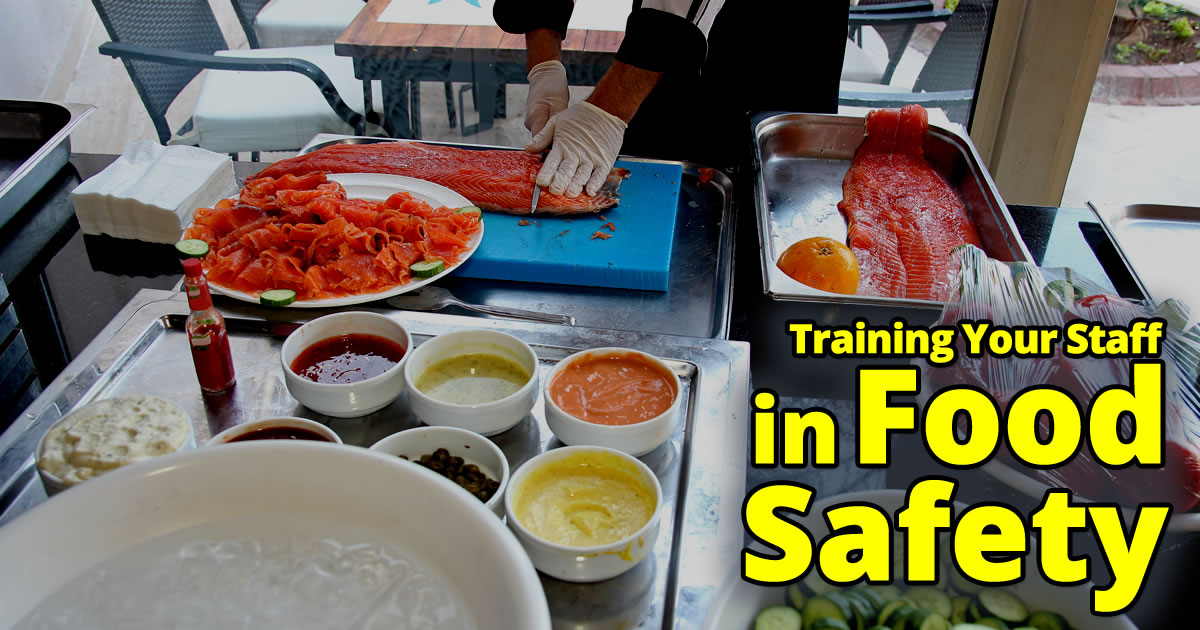
Training Your Staff In Food Safety 101 Acitydiscount

Food Preparation Basics For Growing Restaurants

Food Safety Ways To Prevent Norovirus In Your Kitchen Gordon Food Service

Stand Up Training Cross Contamination

Great Information On How To Wear Gloves Correctly They Are Not Magic Remember Food Safety Posters Kitchen Safety Food Safety Tips

Stand Up Training Cross Contamination
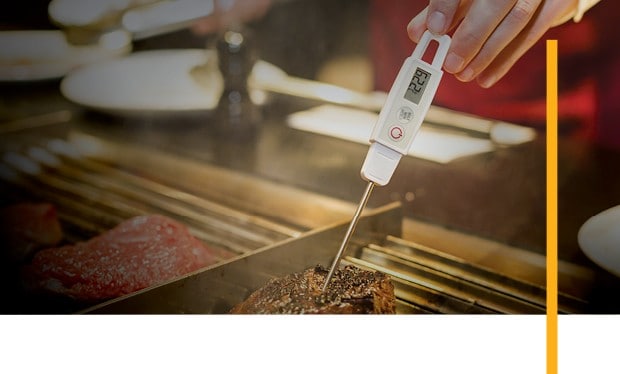
Food Safety For Food Handlers Servsafe Haccp Certified Tips
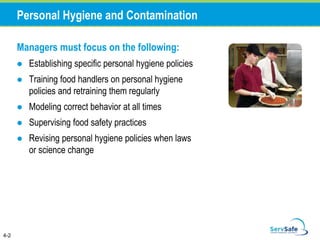
Chapter 4 The Safe Food Handler

Food Safety Poster Personal Hygiene Food Safety Posters Kitchen Safety Food Safety
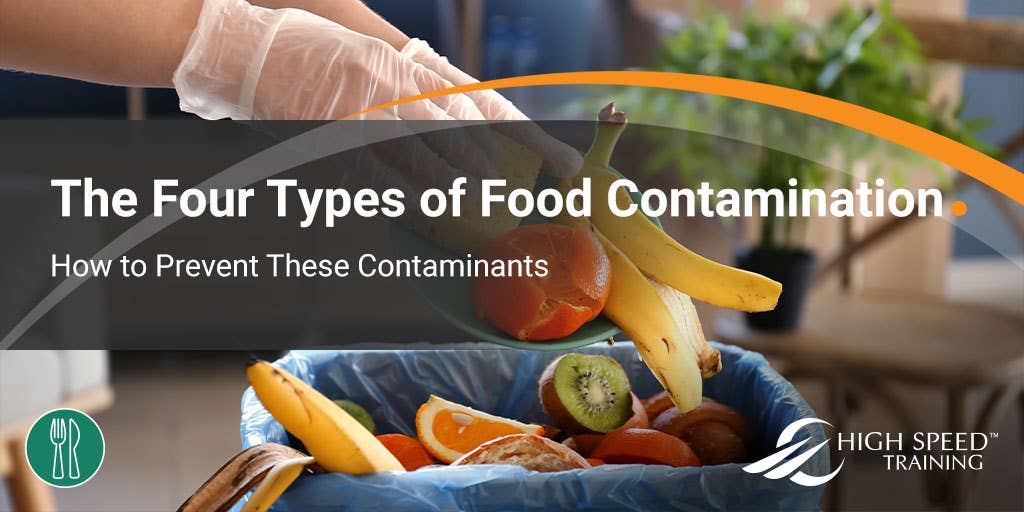
What Are The 4 Types Of Food Contamination Food Safety Guide

Ready To Eat Tcs Food Must Be Marked With The Date By Which It Must Be Sold Food Borne Illness Food Food 101

Food Safety Poster In 2022 Food Safety Posters Kitchen Safety Food Safety

Diagnostic Test Servsafe Food Manager 80 Questions With Answers Youtube
/__opt__aboutcom__coeus__resources__content_migration__serious_eats__seriouseats.com__2020__03__20200320-covid-food-prep-gloves-shutterstock-3d4aa015da574e1b937fa5c14b040e1e.jpg)
Food Safety And Coronavirus A Comprehensive Guide
